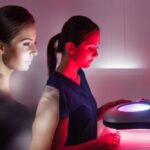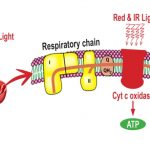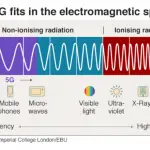Welcome to this discussion on the topic of whether light therapy can cause acne. Light therapy is a popular treatment method for various skin conditions, including acne. However, there are concerns that this type of therapy may actually contribute to the development or worsening of acne. In this discussion, we will explore the scientific evidence available and attempt to come to a conclusion on whether light therapy is safe for acne-prone skin.
Contents
Understanding Light Therapy
Light therapy is a non-invasive treatment that uses specific wavelengths of light to improve mood, sleep, and skin health. It has been used for decades to treat various skin conditions such as psoriasis, eczema, and acne. This treatment works by penetrating the skin and stimulating the cells to produce collagen, which helps to reduce wrinkles and fine lines. Light therapy can also help to reduce inflammation and redness caused by acne.
Different Types of Light Therapy
There are different types of light therapy available, such as blue light therapy, red light therapy, and a combination of both. Blue light therapy is mainly used to treat acne, while red light therapy is used to reduce inflammation and promote healing. A combination of both therapies can provide better results for some individuals.
Benefits of Light Therapy
Light therapy has several benefits, including improving skin texture and tone, reducing the appearance of fine lines and wrinkles, and reducing inflammation and redness caused by acne. It can also help to boost collagen production, which is essential for maintaining healthy skin.
While light therapy is generally considered safe and effective, some people may experience adverse effects such as skin irritation, redness, and dryness. In rare cases, light therapy can cause acne breakouts, but this is not a common side effect.
Factors That Can Cause Acne Breakouts
Acne breakouts can occur due to various factors, such as hormonal changes, poor diet, stress, and certain medications. It is essential to understand the underlying cause of acne breakouts before undergoing any treatment, including light therapy.
Precautions to Take Before Undergoing Light Therapy
Before undergoing light therapy, it is necessary to consult with a dermatologist to determine whether it is suitable for your skin type and condition. People with sensitive skin, eczema, or rosacea may not be suitable candidates for light therapy. It is also essential to follow the recommended treatment plan and avoid excessive exposure to UV light, which can worsen acne breakouts.
Tips for Preventing Acne Breakouts
To prevent acne breakouts, it is crucial to maintain a healthy lifestyle, including a balanced diet, regular exercise, and stress management. Avoid using harsh skincare products that can irritate the skin or clog pores. It is also essential to keep the skin clean and hydrated by using non-comedogenic skincare products.
Other Factors to Consider
It is important to note that light therapy is not a standalone treatment for acne. It should be used in conjunction with other treatments such as topical creams, oral medications, and lifestyle changes. It is also essential to consider the duration of treatment, as light therapy can be a time-consuming process.
FAQs – Can Light Therapy Cause Acne
What is light therapy?
Light therapy, also known as phototherapy, is a non-invasive therapeutic method that uses specific wavelengths of light to treat a variety of conditions, such as depression, skin disorders, and sleep disorders. There are different types of light therapy, including red light therapy and blue light therapy, which are used to target different conditions.
Can light therapy cause acne?
No, light therapy does not cause acne. In fact, light therapy has been shown to improve acne by reducing inflammation and killing the bacteria that cause acne. Blue light therapy, in particular, has been found to be effective in treating acne, as it targets the bacteria that are responsible for causing acne.
Can light therapy worsen acne?
In rare cases, light therapy may worsen acne, especially if the wrong type of light is used or if the treatment is not administered properly. For example, if too much heat is generated during the treatment, it can cause irritation and inflammation, which can lead to the worsening of acne. However, if the light therapy is done correctly, it should not worsen acne and may even improve it.
What types of light therapy are used to treat acne?
The two types of light therapy that are commonly used to treat acne are blue light therapy and red light therapy. Blue light therapy targets the bacteria that cause acne, while red light therapy reduces inflammation and promotes healing.
Are there any side effects of light therapy for acne?
Light therapy for acne is generally safe and does not have any significant side effects. However, some people may experience mild redness, swelling, or dryness after the treatment. These side effects are usually temporary and will resolve on their own within a few hours. It is important to follow the instructions of the healthcare professional when undergoing light therapy for acne to ensure safety and effectiveness.







